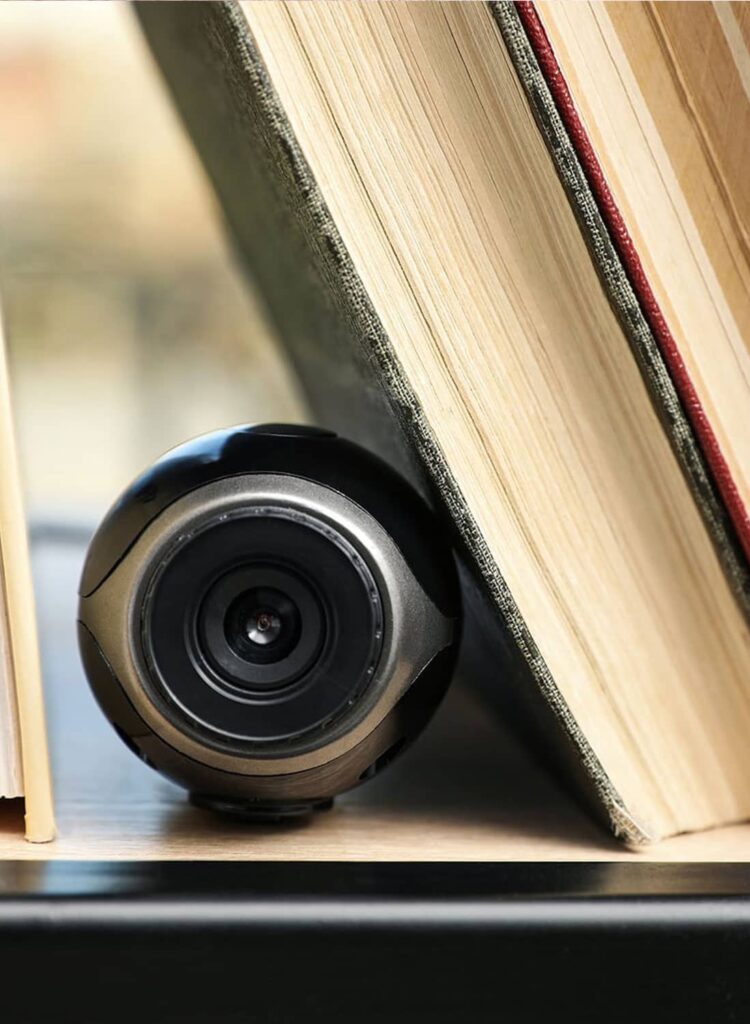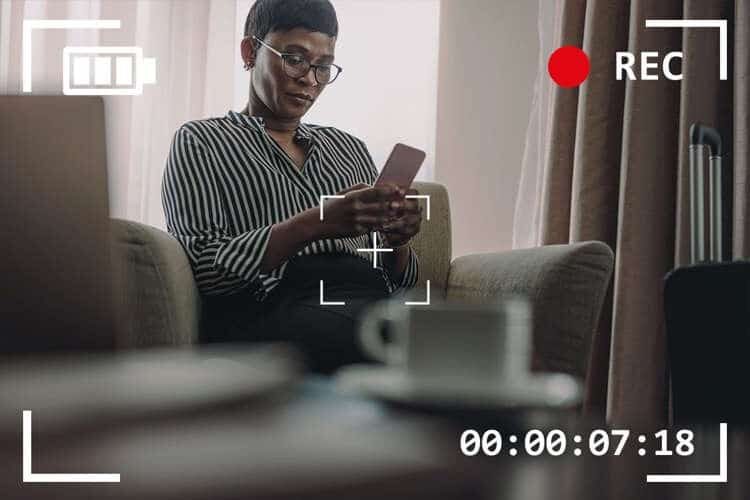Disclaimer: The information provided in this article is for general informational purposes only and should not be taken as legal advice. Laws regarding the use of hidden cameras vary by jurisdiction and can be complex. We strongly recommend consulting your attorney to understand the specific laws applicable to your situation. As private investigators, we provide insights based on our professional experience but only a qualified attorney can provide legal guidance tailored to your needs.
Hidden Cameras: Legal Insights and Best Practices from Private Investigators
Have you ever felt creeped out about hidden cameras in your workplace, car, airbnb, or even public rest rooms or perhaps you are the one who wants to use such devices to snoop and obtain information from some individuals for use in legal proceedings and such like things.
It’s quite easy to snag spy cams nowadays. They are frequently used by property owners, employers, business competitors, suspicious spouses, stalkers, and even the government for a variety of reasons.
Frankly speaking, regulations regarding the use of these devices can be all over the place though. As private investigators experienced in bug sweep operations we often get asked quite a lot about hidden cameras so here is our scoop on the legal framework for these surveillance devices and best practices to avoid landing in legal waterloo.
Legal Framework for Hidden Cameras
Are Hidden Cameras Legal?
When it comes to hidden cameras one has to consider factors such as where the cameras are being used, the reason for the surveillance and the consent of the individuals being recorded.
However, and in a general sense, matters to do with hidden cameras are governed by criminal and civil laws - - which also vary from state to state.
General Overview of Surveillance Laws
Criminal surveillance laws criminalize recording activities or conversations without the subject’s say so. On the contrary civil surveillance laws can be flexible, resulting in what’s known as one party consent in some states and two party consent in others.
State-Specific Surveillance Regulations
Some states are casual about hidden cameras and video recording requiring only one party’s consent while others stick to a two-party consent. This just means that in some states you can legally record activities or conversations that you are part of without the permission of everyone involved. Here’s the breakdown.

One-party Consent states
States With One Party Consent For Both Audio And Video Recording
In the following states you may capture both video and audio of activities or conversations in public and private spaces where you are present without others’ say so. However you can’t use cameras to snoop on people in bathrooms, locker rooms, bedrooms and other places where they expect to feel safe and secure.
- Alabama
- Alaska
- Arizona
- Arkansas
- Colorado
- Florida
- Georgia
- Idaho
- Illinois
- Indiana
- Iowa
- Kansas
- Kentucky
- Louisiana
- Minnesota
- Mississippi
- Missouri
- Montana
- Nebraska
- Nevada
- New Hampshire
- New Jersey
- North Carolina
- North Dakota
- Ohio
- Oklahoma
- Oregon
- South Carolina
- Tennessee
- Texas
- Utah
- Virginia
- Washington
- Wisconsin
- Wyoming
States with One-Party Consent for Video and All-Party Consent for Audio:
The following states allow for video capture with one party consent but not audio. You must obtain the consent of everyone in the conversation if you want to record audio.
- California
- Florida
- Illinois
- Maryland
- Michigan
- Montana
- Pennsylvania
- Washington
Two Party Consent States
Just as in one party consent states, these states criminalize cameras in spaces where people have reasonable expectations of privacy but allow video and audio recording in other spaces if all parties involved agree.
- California
- Connecticut
- Florida
- Illinois
- Maryland
- Massachusetts
- Michigan
- Montana
- Nevada
- New Hampshire
- Pennsylvania
- Washington
- Oregon

Employee Notification Requirements
Apart from spouses, competitors, stalkers, and governments, hidden cameras are also often used by employers for various reasons.
Informing Employees About Surveillance
Federal laws don't require employers to notify employees about workplace surveillance. Be that as it may, some states require employers to tell their employees about any existing cameras, especially in spaces such as lockers, bathrooms, and break rooms. Let's chop it down:
States That Require Notification About Workplace Surveillance
- California
- Connecticut
- Delaware
- Illinois
- Maryland
- Massachusetts
- Michigan
- New Jersey
- New York
- Ohio
- Texas
- Washington
States That Don't Require Notification About Workplace Surveillance
The following states are casual regarding workplace surveillance notification, meaning employers are not obliged to tell employees anything. But remember, the operational consent laws still apply to video and audio capture.
- Alabama
- Alaska
- Arizona
- Colorado
- Florida
- Georgia
- Indiana
- Kansas
- Louisiana
- Mississippi
- Nevada
- North Carolina
- South Carolina
- Tennessee
- Virginia
- Wyoming
Consent and Disclosure Practices
Indeed, be that as it may, even in states that do not require notifying employees, protection of reasonable expectations of privacy still applies in areas such as lockers, bathrooms, and break rooms. In any case, the best thing to do is to let employees know. You can do the notification using:
- Posted signs in the office
- Witten policies in employee handbooks
Privacy and Safety Implications
While federal laws may go easy on employers who use hidden cameras to spy on their teams, workplace surveillance is a textbook example of micromanaging, which often backfires on employers. Here's a look at the implications of spy cams at workplaces.
- Impact on Employee Privacy Rights. Hidden cameras, especially in locker rooms, break rooms, and bathrooms, can frustrate employees, resulting in distrustful relationships and reduced morale in the workplace.
- Safety Concerns with Surveillance. Worst of all, some individuals may start abusing surveillance tech at the workplace to harass or even intimidate employees.

Balancing Security and Privacy
Workplace surveillance can be a tough balancing act for employers. On the one hand, you want to show employees that you respect their privacy while on the other you want to keep everyone safe - - your property included. It's easier if you just tread on the safe side, meaning you should only place cameras where you are genuinely worried about your employees safety and inform them via posted notices and written policies.
Legal Consequences of Unauthorized Use
Penalties for Non-Compliance
Breaking state and federal stipulations about hidden cameras will get you in serious trouble. We are talking:
- Civil penalties such as fines and other payments to remedy damage done
- Lawsuits
- Criminal charges
Legal Repercussions Without Consent
Secretly videotaping individuals in places they should feel safe and secure without their consent can lead to legal action. Individuals may sue, resulting in fines or even prison sentences.
How much does it cost to sweep for hidden cameras
If you are considering a bug sweep service, then it's important to understand that there are several factors that weigh into our cost estimation. We provide various kinds of bug sweep services, from vehicle sweeps to residence and business property inspections. Depending on the size of your property, we may charge per square foot or a flat fee. Here's the breakdown of our rates:
Sweep Of A Residence Under 2,000 SQ. FT. $3,975.00
Sweep Of A Home Over 2,000 SQ. FT. Is $1.85/SQ. FT.
Sweep Of A Business Is $2.35/SQ. FT.
Vehicle Sweeps: $1,975.00

Best Practices for Workplace Surveillance
Guidelines for Proper Monitoring
If you are considering workplace surveillance, place hidden cameras where employers have no reasonable expectation of privacy. In addition, let employees know about the existence of any cameras.
Ensuring Compliance with Regulations
Inform employees about surveillance practices. In some states, you may require the employee's consent to capture both video and audio. Don't forget to consult with your legal team regularly, they can help you identify potential issues.
Ethical Considerations in Surveillance
Surveillance offers several benefits including productivity monitoring, progress tracking, and improved security for staff and property but there's also the danger of invasion of privacy or even making the workplace hostile and intimidating for your staff.
To summarize, it's important to read up on the federal and local laws regarding the use of hidden cameras and ensure you are operating with the right consent, especially if you are filming activities in places where people expect safety and security. If you are running a business, use posted notifications or written policies to inform employees and customers about existing cameras.
We Are Here To Help
Whether you need bug sweep service or just further chat to understand where things stand regarding the cameras on your property, we are ready to help. Our investigators are former federal agents with various law enforcement departments and can help you with whatever surveillance issue you are facing. Feel our online form or dial 1-800-577-1080 to speak with a qualified investigator today.
“WE ARE THE 5-STAR REVIEW LEADER IN OUR INDUSTRY”
Our agency has helped thousands of clients throughout our 50 years of Investigative Services. Read more on what others are saying about us and contact us for a discreet one-on-one discussion on your matter. You’ll be glad you did!
We serve clients in all 50 states and numerous foreign countries.
FAQs
What to do if I find a hidden camera in my property or workplace.
Hidden cameras are cheap to acquire and use nowadays. If you find these devices on your property or in the workplace, don't touch them. Call a PI for further bug sweep of your property or report the matter to your supervisor or employer if it's a workplace matter. In any case, ask your lawyer for advice on how to proceed.
What happens if I use a hidden camera without consent
Watching or even recording people without their say-so can lead to serious legal consequences in states that require all party consent. You could be sued and forced to pay fines or even serve jail sentences for breach of privacy, burglary and other laws you might have broken.
Do I need to notify employees about surveillance?
Not really, some states require it while others don't. However it's good practice especially if you have cameras in spaces where employees expect to feel safe and secure.
Can I use a hidden camera to catch my cheating spouse?
Regarding spy cams and marital partners, it really depends on your state's laws. Some states okay the recording of spouses without their consent, while others criminalize such activities.
Can I use a hidden camera in my home?
Yes, you can install secret cameras in spaces such as kitchens and living rooms in your home, but not bedrooms and bathrooms. Additionally, while video capture is generally legal, you may need the consent of everyone involved to capture audio.
Martin Investigative Services
Martin Investigative Services office is located at 620 Newport Center Dr Suite 1100, Newport Beach, CA 92660
Open: 24/7
Phone: (800) 577-1080

